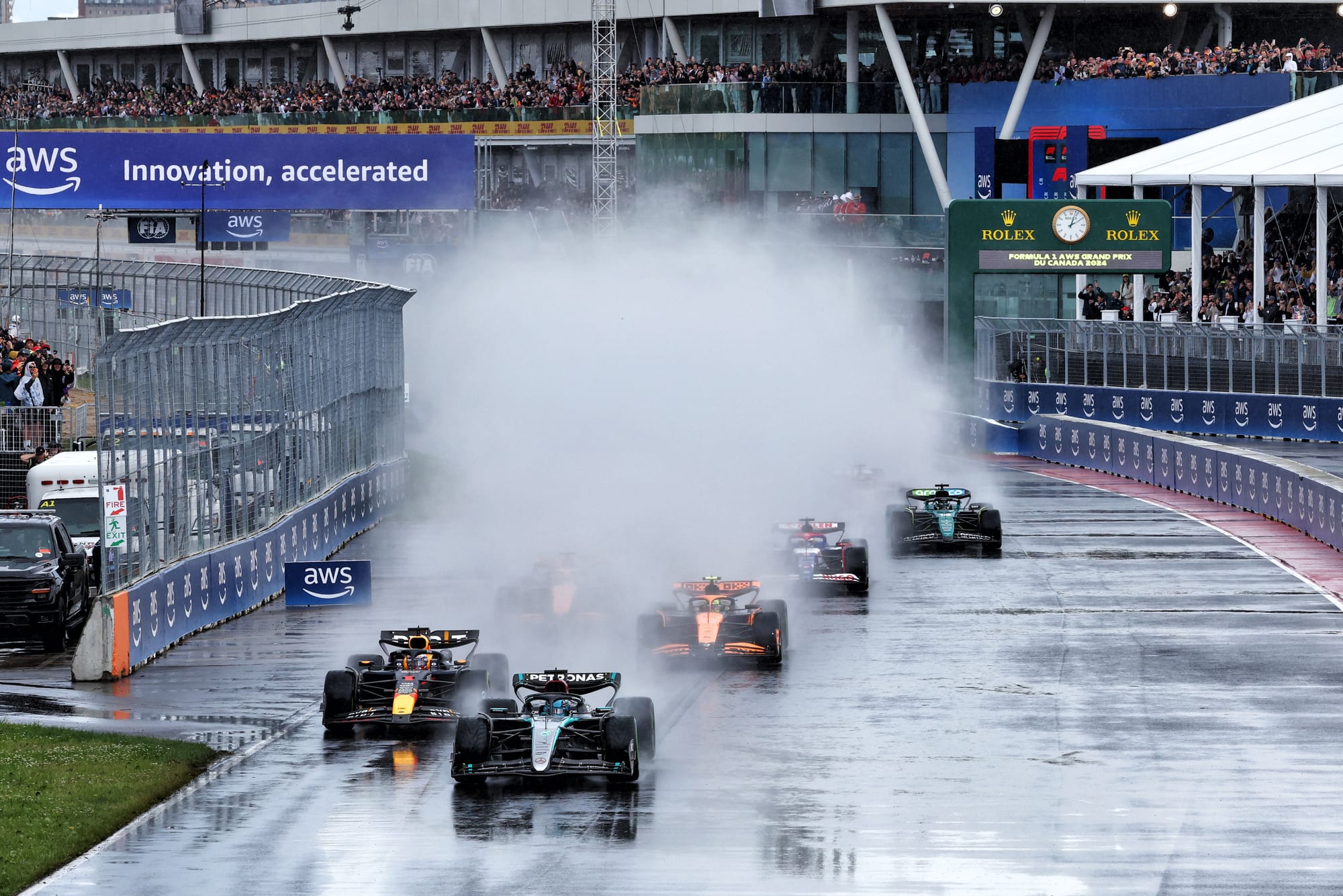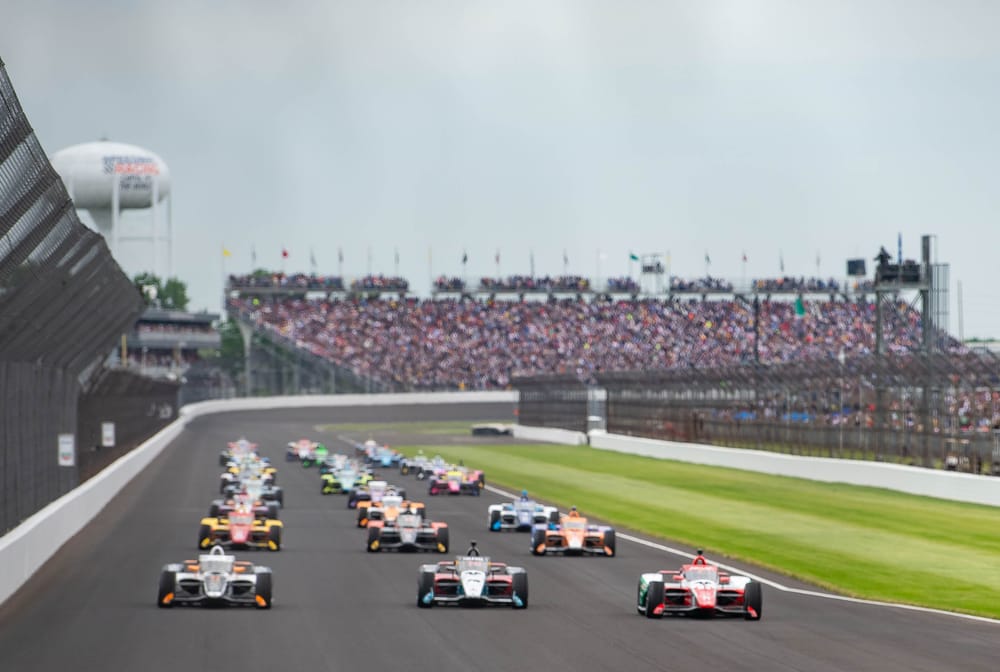Formula 1’s 2026 calendar confirms an unfortunate direct clash between the Canadian Grand Prix and the Indianapolis 500.
A weekend conflict between a grand prix and IndyCar’s blue-riband event is nothing new given the 500 has frequently taken place on the same Sunday as the Monaco Grand Prix.
However, F1’s calendar reshuffle moving Canada to May means Indy will now be on the same day as an F1 race in North America - almost certainly putting the two in direct competition timing-wise.
When it was a Monaco clash, the famous Monte Carlo race would finish well before the 500 began, which allowed fans - and keen F1 personnel - to watch both.
Late last year, when Monaco inked a new F1 deal that shunted the race into June, it was hoped this would prevent any Indy 500 clash at all.
It was known Canada would shift into May to be closer to F1’s other early-season North American race in Miami, which takes place at the start of the month.
However, the two races are not being paired together as a double-header, or even with a conventional single-weekend between them. The Miami GP is scheduled for May 3 with Canada following three weeks later on May 24.
This weekend's 2025 Canadian GP will start at its regular 2pm local time on Sunday, and Montreal runs on the same time zone as Indianapolis. The 500's scheduled start time is traditionally 12.45pm and it would typically run long enough to cover the entire span of the 2026 Canadian GP even if the F1 race did begin an hour or two later.

Although it looks like a needless clash on paper, as holding the Canadian GP just one week earlier would solve the problem entirely, this is an unfortunate consequence of F1 trying to tidy up its schedule to make for better logistics.
For too long F1 has had a bizarre calendar in which Canada randomly punctuated the European leg of the season - something made even worse when Miami joined in 2022 and created a senseless criss-cross between North America, Europe, North America and Europe again in the space of just a few weeks.
This has now been tidied up, but there were understood to be restrictions in how to do so.
One factor is that having Miami and Canada too close together could risk the events competing with each other - which was a similar concern in the past with Mexico and the US GP at Austin, although in that case the two places are in greater proximity.
It's possible F1 feels it faces a greater likelihood of potential race-goers choosing either Miami or Canada than of its global TV audience having to choose between watching the Canadian GP and the 500, and will always protect its own events first.
But another significant factor is that Canadian GP organisers were known to have been resistant to a date change for a long time, believing that mid-June was the best time because of the weather in Montreal in early summer.
And with set-up work at a grand prix starting well in advance of the race weekend itself, it is understood there were concerns an early weekend in May would risk not having the build completed in time given snowstorms are still a risk all the way until late April.
Ultimately, to get the Canadian GP out of its problematic June spot, this May date was the compromise that had to be reached.
How the IndyCar world might take this
Jack Benyon
There's no doubt that a clash happening in North America rather than thousands of miles away in Monaco is going to make IndyCar uneasy. And the response to this is going to come down to how much Canada overlaps with the 500 in terms of timing.
In the IndyCar paddock there's been bubbling disagreement over how to view Formula 1 and its massive influx of North American fans. Should it be seen as an opportunity - 'high tides raise all boats' - or as a competitor?
The former has to prevail because Formula 1 trumps IndyCar in basically every sense, apart from in terms of attendance and prestige at the 500.
It might be that IndyCar and its fans learn to accept this as an opportunity. A race in Canada is unlikely to cost the 500 a massive amount of attendees. People who were going to watch the 500 will almost certainly do so anyway regardless of whether F1 is on, unless there's a massive timing clash and then there will be a big issue.
The Indy 500 has just come off its first sellout in nearly 10 years and a massive TV number - an average of over seven million - which was the biggest since 2008. So it's in a good position generally.
Ultimately, the Monaco GP is a bigger, more threatening event to other series than the Canadian GP is. Perhaps this is an opportunity for North America to capitalise on what is now unquestionably the best day in the continent's motorsport calendar?
A lot of that will depend on how far Canada encroaches on the 500, schedule-wise.
We'll learn more about the respective positions of the series and fanbases involved when America is fully up and awake, but for now there's plenty of questions to be answered and likely a lot of opinions from the heart or head...



